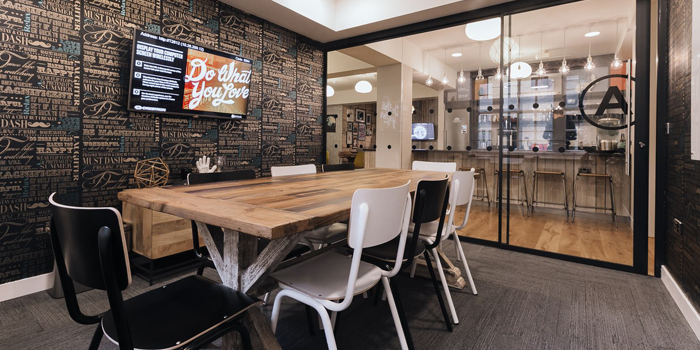
Home Business – The Good, The Bad, and The Possibilities
Home Business – The Good, The Bad, and The Possibilities
A recent blog post asked whether it was time for your home business to move out. This likely resonated with many small business owners who operate out of the home and who may be growing out of the home business model. So, what if you are not ready to plunge into Denver’s highly competitive commercial real estate market? What if you are uncertain about your business’s potential for profit vs. the added expenses of leasing or buying an office space or storefront? There are other hybrid options that can keep you running your business from home while leasing or sharing space for your growing needs without breaking the budget. This post will discuss the good, the bad, and the possibilities for your expanding home business. A small business attorney will help you decide what is right for you now and in the future.
Why Your Small Business Should Stay at Home
The perks of working out of the home are well known. Among the top advantages are versatility, flexible schedules, low overhead costs, and increased value of your home. If you have been successfully operating this way with little to no legal hiccups – permits, forms, insurance, licenses, etc. – then you truly are at home. Plus, if you are in the start-up years, this may be the most cost-effective way to work. Another very beneficial pro of working from home is less commute time, which translates into more revenue-producing time. According to a Forbes article, the flexibility of working from home allows you to scale up or down more quickly, hiring more or fewer people, or working longer or shorter hours to right-size your business operations. Furthermore, you are able to work as late into the night or as early in the morning as it suits your family and schedules. Other benefits include tax breaks, reduction in fixed costs, and the ability to test out products or services before investing heavily in commercial space. Your small business attorney will help you from choosing a legal structure to securing and registering domain names and trademarks.
When Your Small Business Needs to Break Free
It may suit your clientele fine to conduct coffee shop meetings, but this may change as your business grows. You may need larger, quieter, or more private venues for meetings and presentations. Work-life balance and the space you designate in your home for business may become more challenging as the demands of your growing business increase. Vendors may not be able to deliver large shipments to your small garage. Restrictions from zoning regulations can impede you from adding separate structures to your home and even from displaying signs or allowing employees and customers to park. The lack of a more professional business location may limit your credibility and customer base. A small business attorney will help with your home business transformation from deciding if it is time to expand beyond the home to changing the way you do business.
Where Else You Can Conduct Business
If the prospect of spending $25 per square foot for office space in Denver is out of the question, there are other possibilities. Whether you are a startup or an established home business, you can find less expensive alternatives to traditional office leases that fit your needs.
- Temporary Office Spaces – These are spaces available just for those times when you need to meet clients face-to-face in a professional setting.
- Coworking Spaces – These also allow you to rent space for a certain number of days each month and often offer conference rooms or even amenities like fitness center access and networking events and workshops.
- Executive Suites – These are custom-built spaces that allow you to grow. Even a small space can give you access to amenities, such as shared conference rooms and break areas with other small business owners, a lobby, a receptionist, and in some locations, administrative help.
If you need help with your growing home business, contact me, Elizabeth Lewis, at the Law Office of E.C. Lewis, P.C., home of your Denver Business Lawyer. Phone: 720-258-6647. Email: elizabeth.lewis@eclewis.com
Contact Us Today
Law Office of E.C. Lewis, P.C.
Your Denver Business Attorney
LICENSED IN COLORADO AND NORTH CAROLINA
Mailing Address:
501 S. Cherry Street, Suite 1100
Denver, CO 80246
720-258-6647
Elizabeth.Lewis@eclewis.com
Online at:
Real Estate Services for Business Owners
Elizabeth Lewis provides the following real estate law services to small and medium sized business owners in Denver and throughout Colorado:
- Commercial real estate purchases
- Legal review of commercial real estate leases
- Protecting your assets



